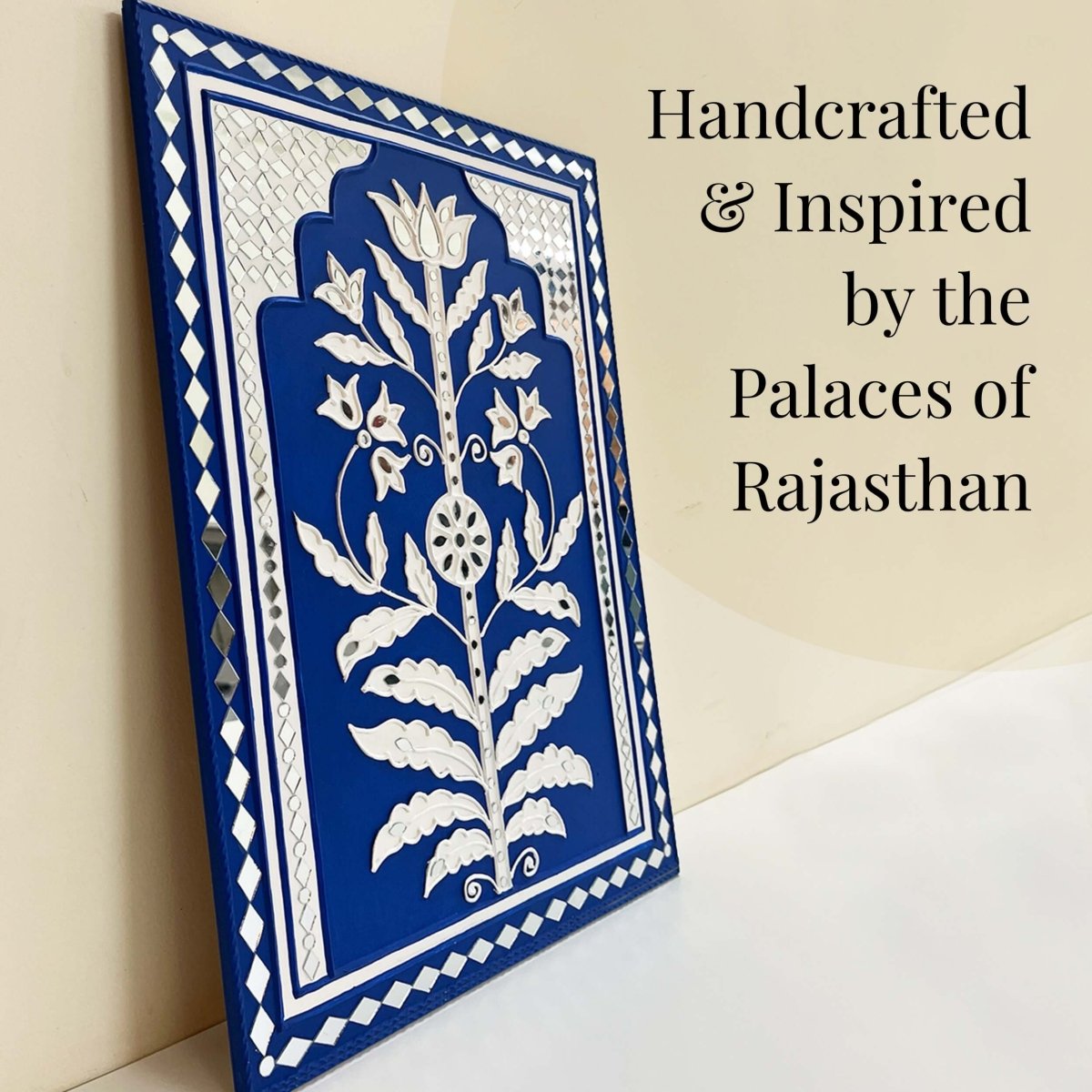Indian Jews In Israel: It Wasn’t The Promised Land
BOOKMARK
Seventy-three years ago, Israel made a promise to India’s Jews it didn’t keep. It invited them to 'return to the promised land’ but went back on its word. Sometimes with heart-wrenching consequences.
The invitation was extended, not just to India’s Jews but to Jews all over the world, when a new state of Israel was created in 1948 after the Second World War. The Israeli government was promoting the new sovereign entity as the ‘promised land’, a reference made by the Hebrew scriptures to a homeland for Jews who had been exiled 2,000 years earlier.
Many Indian Jews packed up their lives and livelihoods and ‘made the Aliyah’, a religious phrase that describes ‘moving to the Land of Israel’. They had no idea just how miserable they would be.
Independence had come to India a year earlier and the new Israel appeared tempting. In India, hundreds of thousands of people had just died due to the Partition of the subcontinent and widespread communal discord had made India’s Jews, a religious minority, nervous about their future.
The promise of a new Jewish homeland was being discussed and described in Indian synagogues and Jewish schools, and the Jewish Agency told Indian Jews that the land of their forefathers was waiting for them. The Agency, a non-profit organization facilitating the immigration of the Jewish diaspora to Israel, was promising homes, work and education to all Jews.
It didn’t quite work out that way for the 5,310 Jews who left India for Israel in 1948 and the years that followed.
Jews In India
The Jews have enjoyed a rich history in India, traditionally found in the cities of Cochin, Madras, Calcutta and Bombay. Over the centuries, the community has seamlessly blended into Indian society and enjoyed religious freedom.
The Cochin Jews are among the oldest Jewish communities in India. They were originally traders from Judea (in present-day Israel) who landed in Cranganore, an ancient port near Cochin, in 562 BC. The second group of Jews were the Bene Israelis or the ‘Children of Israel’ by far the largest Jewish community in India. They were believed to have been shipwrecked on the Konkan coast of western India more than 2,100 years ago though the exact dates are not known. Known as ‘Shaniwar Telis’, the Bene Israeli community seamlessly integrated into the Konkani society and adopted local customs. The third group was the Baghdadi Jews arrived from the Middle East in the mid-19th century and settled in port cities such as Bombay and Calcutta.
A Life of Hardship
Since 1948, the Jewish Agency brought across 3 million immigrants to Israel and offered them transitional housing in ‘absorption centers’ across the country. Among these were Jews from India, who gave up so much for so little, at least for the first generation.
A vivid description of this ‘new life’ for India’s Jews comes from a series of letters written by them to the Israeli government, the Government of India, then Indian Prime Minister Jawaharlal Nehru and even human rights groups. The letters, preserved in the National Archives of India, reveal details of the miserable life they were forced to lead due to alleged racial discrimination
– Upon arrival in Israel, European and non-European Jews were segregated and allocated different accommodation.
The homes assigned to Indian Jews were tents, wooden huts and tin houses, whereas European Jews were assigned more permanent structures including apartments and even fully furnished villas. Others were given decent rooms in buildings with access to water, electricity and sanitation. In cases where houses were not ready, European Jews were put up in hotels until permanent accommodation could be allotted.
The Jewish Agency had promised education for children but access to this too was given along the lines of race – Indian children were given a primary education, whereas the European children received university-level education.
Many Indian Jews had quit government jobs and shut their businesses to settle in Israel but the new positions they were assigned were far inferior to those they had enjoyed in India. They were also far inferior to their qualifications. They were given temporary work at low salaries, while European Jews were given permanent jobs with high salaries, including many who were not really qualified for these jobs.
In health care too, European Jews were given priority. They were given priority in the allotment of hospital rooms even over extremely sick Indians. Sometimes, non-European Jews were apparently turned away and told to return later, when the patient needed more urgent care.
One letter from an Indian Jew to the Israeli Government said: “Promises were made to us in India by the Israeli authorities that work will be given to us in Israel according to our profession, very good education to our children, and decent houses to stay. Therefore, we agreed to resign from our very long service jobs, our very good homes, and the education of our children, to come to Israel and find out just the contrary of what was promised to us, and we are your victims by your false promises… We now appeal to all men with conscience and in the fair name of humanity to raise their voices and ask why are the Sepharadis and Indians, in particular, are treated in this and human living and what is our future. Is it only to fight wars for you all and nothing else?”
The last sentence is a reference to Israeli law, which made it mandatory for young men and women to serve in the military for two and a half years. After that, there were no prospects for education or permanent jobs for these young men and women. Indian Jews felt that their children were being used for military purposes by Israel, without a care for their future.
In a letter to the Prime Minister of Israel and the Chairman of the Jewish Agency, an Indian Jew wrote:
– “We are fed up and our patience is exhausted, and we cannot tolerate your ZOOLUM RAJ and DISCRIMINATION any more.”
One letter addressed to Indian Prime Minister Jawaharlal Nehru, said: “We beg and pray, Honourable Sir, God of Peace and Justice, to help your Indian children in distress, and ask the merciless rulers of Israel to repatriate us back to our dear mother country India. LONG LIVE INDIA.”
When Indian Jews asked for permission to conduct peaceful protests in Jerusalem, their request was denied. So they continued to write to the Government of India, the Government of Israel, the Prime Ministers of both countries and to human rights groups, highlighting their plight and asking for relief and rescue.
But this too posed a challenge. One letter addressed to Nehru reveals that Indian Jews were questioned even about their complaints to human rights bodies and to the Indian government. The Israeli authorities had apparently threatened them with imprisonment if they continued to write these letters of complaint!
The Bene Israeli Jews, who had emigrated primarily from Maharashtra, were treated worse than the other Indian Jewish communities. Between 1948 and 1952, about 2,300 Bene Israelis had migrated to Israel.
Returning To India
The Government of India replied to their letters, stating that according to Indian laws, those who had accepted Israeli citizenship but wanted to relinquish it and get their Indian citizenship back could do so on two counts – they would have to prove their original Indian nationality ; and they should have emigrated to Israel between 1948 and 1952. The Ministry of External Affairs had set the rules in order to establish a certain policy for return, not all migrated Indian Jews could return.
The files in the National Archives of India reveal that, since they were not distressed refugees, the Indian Government had no obligation to provide Indian Jews with any funds. Even the ones who returned to India, came back on their own expense.
India had been home to Jews for centuries and the community has lived here without discrimination. Thus, for many, the return journey to India from Israel was truly a homecoming.
Process of Assimilation
While first-generation Indian Jews bore the brunt of racial discrimination in Israel, their descendants have been assimilating into the Israeli way of life. There are currently 85,000 Jews of Indian origin in Israel and the Indian government has been making an effort to forge a bond with this community.
It has honoured a few prominent members of the Indian Jewish community in Israel, including Eliyahu Bezalel, originally from Chennamangalam, Cochin, and the first Israeli of Indian origin to receive the Pravasi Bharatiya Samman. A distinguished agriculturalist, he was honoured in 2005.
Sheikh Ansari, who manages the Indian Hospice in Jerusalem, a unique Indian connection to the Holy City, was also conferred the Pravasi Bharatiya Samman. He received it in 2011, while in 2017, Dr Lael Best, an Israeli cardiothoracic surgeon of Indian origin, was conferred the award.
In 2013, the Indian Embassy in Tel Aviv hosted the first-ever National Convention of Indian Jews in Israel, in Ramla. Four more annual conventions have since been held in various Israeli cities.
The Indian government’s Know India Programme, aimed at helping young Indian-origin youth overseas identify with their Indian roots, has helped initiate several academic courses relating to India in Israeli universities. Courses relating to India are taught at Tel Aviv University, Hebrew University and Haifa University. Also, India has signed a Memorandum of Understanding with Tel Aviv University to set up a Rotating Chair for Indian studies in the Department of East and South-East Asian Studies, while Hindi is taught at Tel Aviv University and at Hebrew University.
With the passage of time, Indian Jews are blending with the culture of Israel and are being accepted into the mainstream. While that’s a step in the right direction, let’s not forget the sacrifices of those who went before them.
– ABOUT THE AUTHOR
Vishwajeet Deshmukh is a law student at Government Law College, Mumbai. He is the recipient of Tata Trusts and 1947 Partition Archive Research Grant 2021. His research interests include history, law, and cinematic studies.









